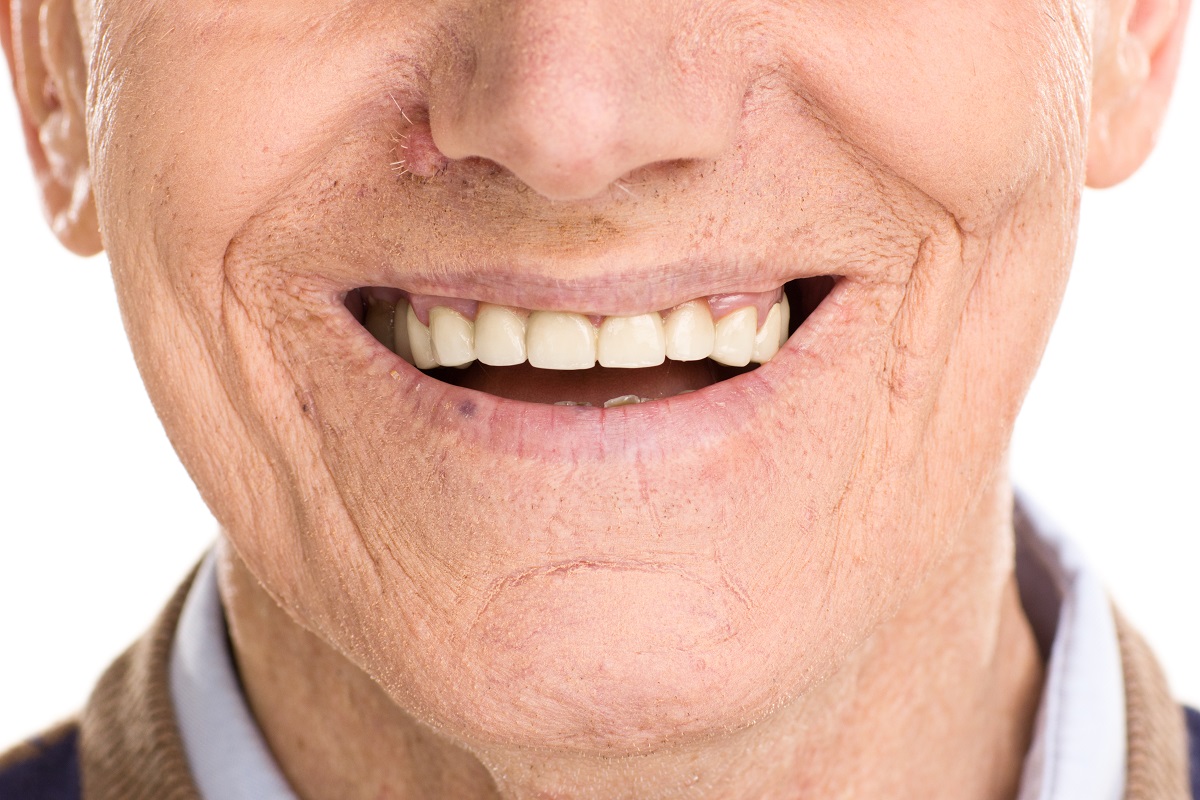- Regular jaw exercises and a nutrient-rich diet can significantly improve jaw strength.
- Staying well-hydrated is crucial for overall jaw muscle health and oral hygiene.
- Regular dental checkups help identify potential issues affecting jaw function and strength.
- Good posture, specifically involving the head and neck, plays a significant role in promoting jaw strength.
- High-quality dental implants can restore jaw strength for those suffering from tooth loss.
Aging can bring about various physical changes, including weakening jaw strength. But don’t worry – there are effective methods to counter this issue. You might wonder, “What are the best ways to improve jaw strength?” Explore some beneficial exercises and dietary changes that can help enhance your jaw strength, making daily activities like talking and eating more comfortable.
Enhancing Jaw-Improvement Habits
Under the category of enhancing jaw-improvement habits, several techniques can contribute to strengthening your jaw muscles. Here are some important tips to keep in mind:
Practicing Jaw Exercises

Jaw exercises are crucial in maintaining and improving jaw strength. Regularly engaging in jaw opening and closing exercises, lateral movements, and tongue stretches can help fortify these muscles. Start with slow, controlled movements and gradually increase the intensity. For example, the jaw opening exercise involves slowly opening your mouth as wide as possible and then gently closing it. Repeat this process several times.
Similarly, lateral jaw movement exercises require you to move your jaw from side to side. At the same time, tongue stretches involve sticking your tongue out as far as possible, moving it from one corner of the mouth to the other.
Keep in mind that consistency is key. Like any other form of physical exercise, regular practice is essential for noticeable improvement. Consulting with a healthcare professional can provide further guidance and ensure these exercises are performed safely and effectively.
Eating a Nutrient-Dense Diet
Maintaining a nutrient-dense diet is another vital aspect of improving jaw strength. Like any other body part, the health of our jaw is directly impacted by the quality of our nutrition. A balanced diet with vitamins, minerals, and proteins can improve muscle function and strength. Foods high in calcium such as milk, cheese, and leafy green vegetables can help support bone health in the jaw.
Also, chewing hard foods like apples, carrots, or whole grains can naturally strengthen the jaw muscles. It’s not just about what you eat, but also how you eat. Slow, mindful chewing can stimulate blood circulation in the jaw, promoting muscle health. Remember: a comprehensive approach combining diet and exercise will yield the best results for improving jaw strength.
Staying Hydrated

Ensuring proper hydration is crucial for overall body function, including jaw strength. Adequate water intake ensures that nutrients reach the muscles, maintaining their health and efficiency. Dehydration, conversely, can lead to muscle cramps and fatigue, which could affect the functioning of the jaw muscles.
Additionally, drinking water stimulates saliva production, essential for maintaining oral health. Saliva helps wash away food particles and bacteria, preventing oral diseases that could weaken the jaw.
Regularly sipping water throughout the day, especially during meals, can also assist digestion, making swallowing easier and reducing the strain on the jaw muscles. Therefore, staying well-hydrated not only contributes to strengthening jaw muscles but also promotes overall oral health.
Getting Regular Dental Checkups
Regular dental checkups are essential to monitor and maintain oral health, including jaw strength. Routine visits to the dentist can help identify potential issues early, such as teeth grinding or misalignment, which could negatively affect jaw function and strength over time. Dentists can also provide personalized advice and exercises to improve jaw strength based on individual circumstances.
Moreover, oral health is closely connected to overall health. Conditions like gum disease can lead to systemic health issues, such as heart disease if left untreated. Therefore, Regular dental checkups play a crucial role in preserving jaw strength and oral health and maintaining overall wellness. Visiting your dentist twice a year for checkups and cleanings is generally recommended, although the frequency can vary based on individual needs.
Maintaining Good Posture
Maintaining good posture is an often overlooked, but essential factor in preserving and improving jaw strength. Poor posture, specifically those involving the head and neck, can place undue pressure on the jaw muscles and temporomandibular joint, leading to pain and decreased function.
Keeping your head straight and aligned with your spine can alleviate this stress and enhance jaw muscle strength. Furthermore, while concentrating or during times of stress, people often unconsciously clench their teeth or thrust their tongue against their teeth, straining the jaw muscles.
Mindfulness of these habits and consciously relaxing your jaw and face muscles throughout the day can also improve jaw strength. Thus, maintaining good posture is beneficial for your overall physical health and appearance and plays a significant role in promoting jaw strength and function.
Considering High-Quality Hybrid Dental Implants
High-quality hybrid dental implants have emerged as an effective solution for those suffering from weakened jaw strength due to tooth loss. These implants are designed to replicate the function and appearance of natural teeth, restoring the ability to chew food effectively, which in turn helps to maintain and enhance jaw strength.
Dental implants stimulate the jaw muscles by simulating the natural chewing process, preventing muscle atrophy and promoting bone health. Furthermore, hybrid dental implants offer the advantage of being fixed and non-removable, making them a more convenient and comfortable alternative to traditional dentures.
Therefore, if you’re experiencing a decline in jaw strength due to missing teeth, considering high-quality hybrid dental implants could be a worthwhile option. However, it’s important to consult a dental professional to discuss your needs and determine if this solution is right for you.
Start incorporating these habits into your daily routine today and experience the difference. Remember to consult your healthcare or dental professional before starting any exercise regime or making major dietary changes.






